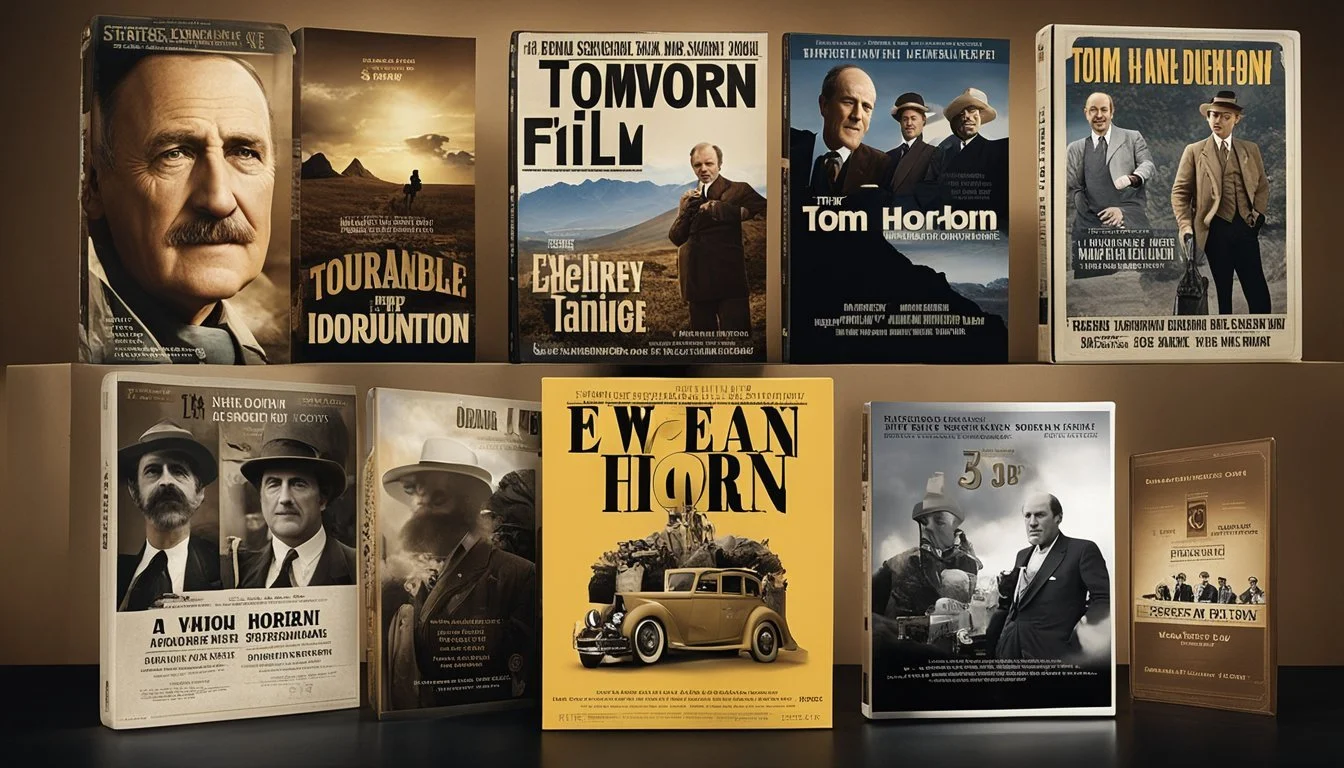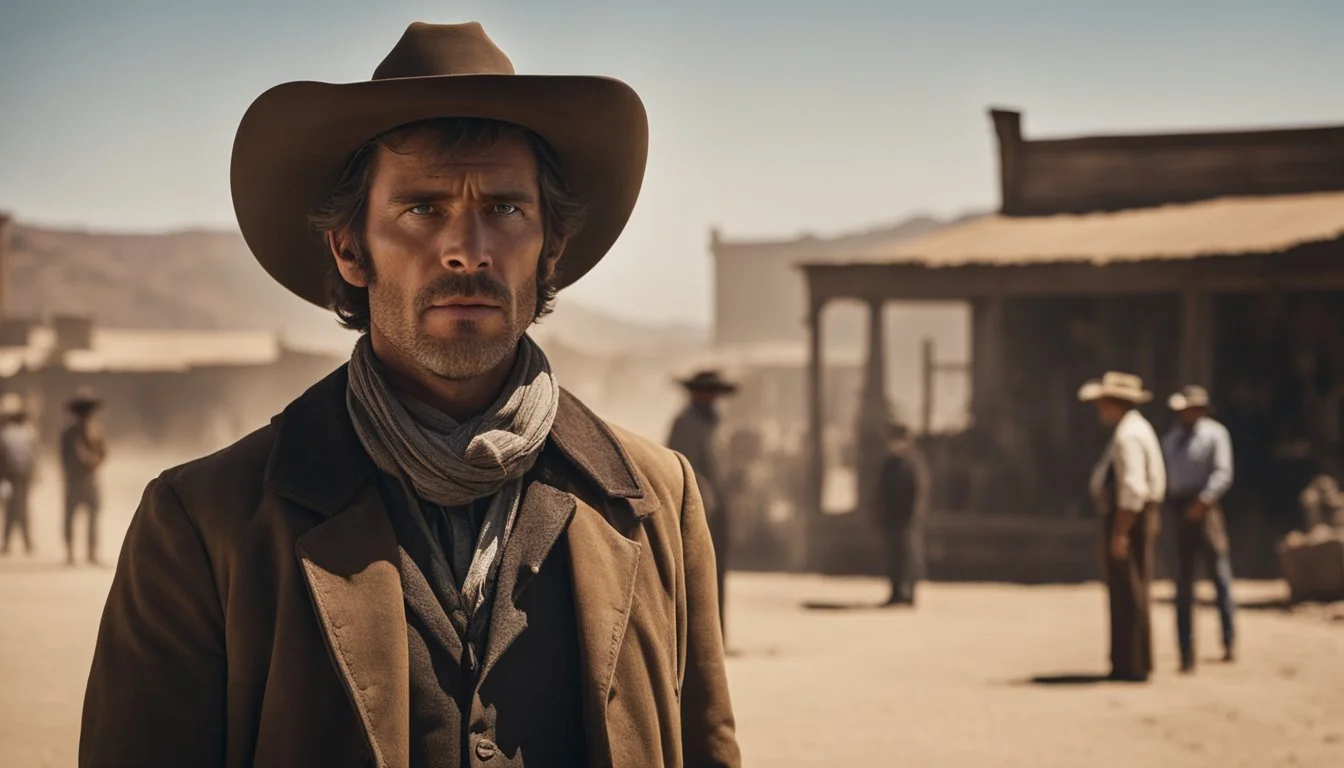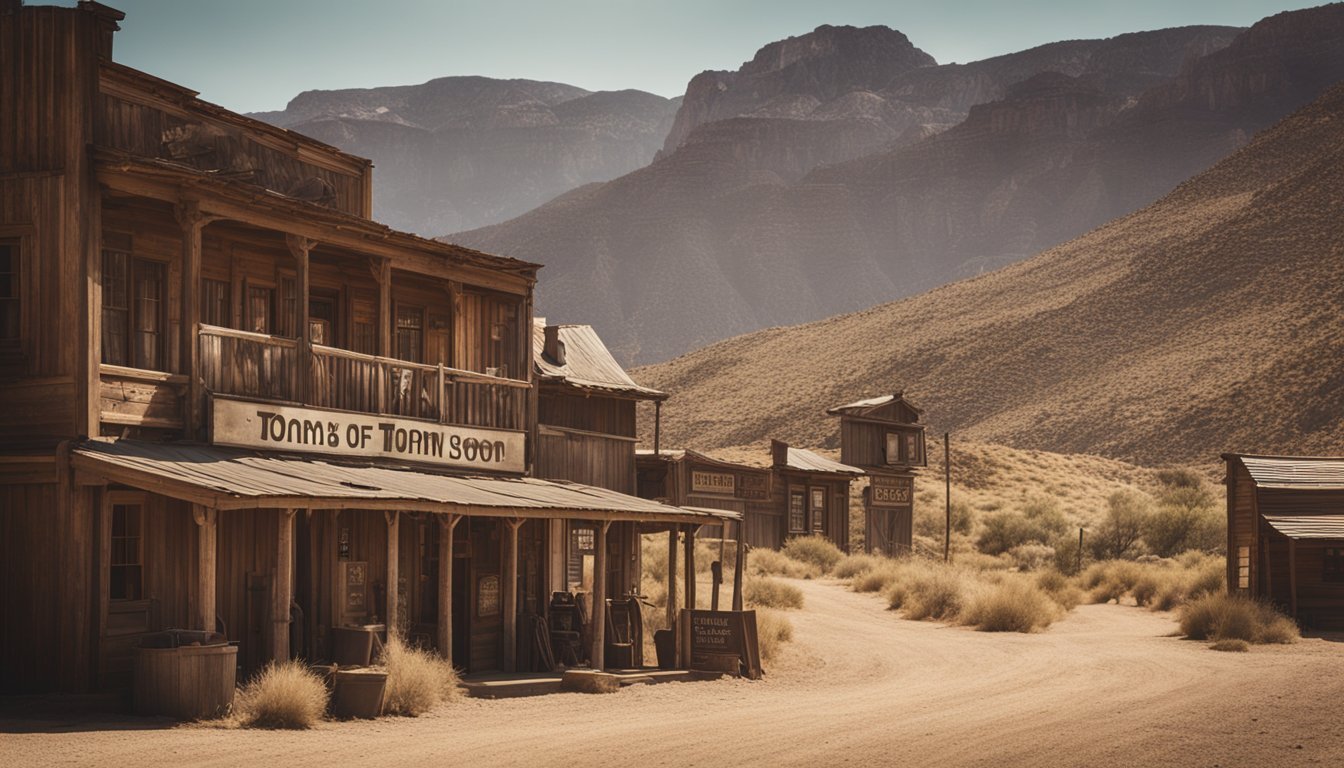7 Tom Horn Documentaries That Examine His Controversial Life
Exploring the Legacy of a Western Legend
Tom Horn remains a captivating figure in American frontier history, known for his varied roles as a cowboy, scout, and gunman in the late 1800s. His life story continues to intrigue historians and Western enthusiasts due to its controversial nature and lasting impact on Wild West lore.
Several documentaries have explored Tom Horn's complex legacy, shedding light on his exploits and the mysteries surrounding his final days. These films examine Horn's involvement in various conflicts, his work as a detective, and the notorious murder case that led to his execution. By delving into primary sources and expert analyses, these documentaries offer viewers a nuanced look at one of the Old West's most enigmatic characters.
1) The Legend of Tom Horn
Tom Horn's life as a frontier scout, lawman, and alleged assassin has captivated the American imagination for over a century. Born in 1860, Horn gained fame for his tracking skills and marksmanship in the late 19th century American West.
Horn worked as an Army scout, Pinkerton detective, and range detective for cattle companies. His reputation grew as a skilled tracker and expert marksman. These abilities made him both respected and feared throughout Wyoming and surrounding territories.
In 1901, Horn was arrested for the murder of 14-year-old Willie Nickell. His controversial trial and execution in 1903 only added to his mystique. Horn maintained his innocence until his death, leaving many questions unanswered.
Over the decades, Horn's life story has been depicted in numerous books, films, and television shows. His complex legacy as both lawman and outlaw continues to fascinate historians and the public alike.
The enduring interest in Tom Horn reflects broader themes of frontier justice, violence, and the blurred lines between law and lawlessness in the Old West. His story remains a subject of debate and interpretation to this day.
2) Tom Horn: A Cowboy's Controversy
Tom Horn led a life filled with adventure and controversy. Born in 1860 in Missouri, he left home as a teenager and worked various jobs in the American West.
Horn gained notoriety as an Army scout, cowboy, and range detective. His skills as a tracker and marksman made him valuable to cattle companies dealing with rustlers.
In 1901, Horn was arrested for the murder of 14-year-old Willie Nickell. The trial drew widespread attention and remains a subject of debate to this day.
Despite maintaining his innocence, Horn was convicted and hanged in 1903. Many questioned the fairness of his trial and the reliability of the evidence against him.
Horn's life has been the subject of numerous books, films, and documentaries. His complex legacy continues to fascinate historians and Old West enthusiasts alike.
3) Tom Horn's Last Stand
Tom Horn's final days were marked by controversy and legal drama. In 1901, he was arrested for the murder of 14-year-old Willie Nickell near Iron Mountain, Wyoming.
Horn's trial in 1902 attracted significant public attention. The prosecution argued that Horn had been hired as a range detective to intimidate homesteaders, while the defense claimed he was framed.
Despite maintaining his innocence, Horn was found guilty and sentenced to death. His execution by hanging took place on November 20, 1903, in Cheyenne, Wyoming.
The documentary "The Life and Legend of Tom Horn" (2014) examines the events leading up to Horn's arrest and execution. It explores the questionable evidence and conflicting testimonies that surrounded his case.
Another film, "Tom Horn's Last Stand" (2018), focuses specifically on Horn's final years. It delves into the legal proceedings and the controversies that persisted long after his death.
These documentaries highlight the enduring fascination with Tom Horn's life and the ongoing debate about his guilt or innocence in the Nickell murder case.
4) The Trials and Tribulations of Tom Horn
Tom Horn faced numerous legal challenges throughout his tumultuous life. His most infamous trial occurred in 1902 when he was accused of murdering 14-year-old Willie Nickell.
The trial captivated the public and media. Horn maintained his innocence, but inconsistencies in his statements and circumstantial evidence led to his conviction.
Many questioned the fairness of Horn's trial. Some argued that cattle barons who had previously employed him as a range detective had set him up to take the fall.
Horn's imprisonment and appeals process dragged on for over a year. He wrote his controversial autobiography during this time, further fueling public interest in his case.
Despite efforts by supporters to secure a pardon, Horn was ultimately executed by hanging in 1903. His death marked the end of an era in the American Old West.
The trial and execution of Tom Horn remain subjects of debate among historians. Questions linger about the evidence, legal procedures, and political motivations surrounding his conviction.
[External link: Tom Horn Trial]
5) Tom Horn: The Untold Story (2020)
This documentary explores the life of Tom Horn, a controversial figure in the American Old West. It examines his various roles as an Army scout, cowboy, and range detective.
The film delves into Horn's time as a Pinkerton agent and his reputation as a skilled tracker and gunman. It presents evidence about his alleged involvement in several high-profile killings.
A significant portion focuses on the murder of Willie Nickell, for which Horn was convicted and executed. The documentary presents arguments both for and against Horn's guilt in this case.
Interviews with historians and experts provide context for Horn's actions within the changing landscape of the late 19th and early 20th century American West. The film also touches on Horn's own writings and statements.
More information on Tom Horn: The Untold Story
6) The Life and Death of Tom Horn
This documentary explores the complex life of Tom Horn, a controversial figure of the American Old West. Born in 1860, Horn worked as a scout, lawman, and hired gunman throughout his career.
The film traces Horn's early days as an Army scout and interpreter during the Apache Wars. It then delves into his time as a Pinkerton detective and later as a range detective in Wyoming.
Horn's most notorious period as an alleged assassin for cattle barons is examined in detail. The documentary presents evidence both supporting and challenging claims about his involvement in various murders.
The final act focuses on Horn's 1902 arrest for the murder of 14-year-old Willie Nickell. His trial, conviction, and 1903 execution in Cheyenne, Wyoming are portrayed with historical context.
Featuring interviews with historians and archival materials, this documentary aims to separate fact from legend in Tom Horn's life story. It highlights the ongoing debate over his guilt in the Nickell murder case.
7) Tom Horn: Lawman or Outlaw? (2009)
This documentary explores the complex legacy of Tom Horn, examining his roles as both a lawman and an alleged outlaw. It presents evidence from historical records and expert interviews to shed light on Horn's controversial career.
The film delves into Horn's early days as a scout and interpreter for the U.S. Army, highlighting his skills and reputation. It also covers his time as a Pinkerton detective, where he gained notoriety for his methods of catching cattle rustlers.
Horn's later work as a range detective is scrutinized, with the documentary examining accusations that he became a hired gun. The film presents arguments for and against Horn's involvement in various killings, including the murder of Willie Nickell.
The documentary concludes by exploring Horn's trial and execution, considering whether justice was served or if he was wrongly convicted. It leaves viewers to ponder the question: was Tom Horn ultimately a lawman or an outlaw?
More information on Tom Horn: Lawman or Outlaw?
Historical Context of Tom Horn's Life
Tom Horn lived during a tumultuous period of American expansion and conflict in the late 19th and early 20th centuries. His life intersected with key events and transitions in the Old West.
Early Life and Career
Born in 1860 in Missouri, Tom Horn came of age during the final years of the Indian Wars. He left home as a teenager and headed west, where he found work as an Army scout and interpreter.
Horn's linguistic skills in Apache dialects proved valuable to the U.S. Army. He served under renowned scouts like Al Sieber during campaigns against Apache leaders Geronimo and Victorio in the 1880s.
His reputation grew as a skilled tracker and marksman. These abilities would shape his later career trajectory and ultimately contribute to his notoriety.
Role in the Pinkerton National Detective Agency
After his Army service, Horn joined the Pinkerton National Detective Agency in the early 1890s. The agency frequently hired former lawmen and scouts for their investigative skills.
As a Pinkerton operative, Horn worked on cases involving train robberies and cattle rustling. His methods often involved infiltration and intelligence gathering.
Horn's time with the Pinkertons honed his detective skills but also exposed him to controversial tactics. The agency faced criticism for using violence and intimidation in labor disputes.
Allegations and Controversies
Horn's later work as a range detective in Wyoming placed him at the center of bitter conflicts between cattle barons and smaller ranchers. He gained a reputation as an enforcer willing to use lethal force.
Accusations of assassinations and intimidation followed Horn. The most serious charge came in 1901 when he was accused of murdering 14-year-old Willie Nickell.
Horn's trial in 1902 was sensationalized in the press. Despite maintaining his innocence, he was convicted and hanged in 1903. Debate over his guilt continues to this day among historians.
Analysis of Tom Horn's Trials and Execution
Tom Horn's legal proceedings were marked by controversy and public fascination. His trial and execution remain contentious topics in Western history, with ongoing debate about the fairness of the proceedings and the validity of the evidence presented against him.
Legal Proceedings
Tom Horn's trial for the murder of Willie Nickell began in 1902. The prosecution relied heavily on a confession allegedly obtained while Horn was intoxicated. This key piece of evidence has been scrutinized by historians and legal experts for decades.
Horn's defense team argued that the confession was unreliable and that there was a lack of physical evidence linking him to the crime. Despite their efforts, the jury found Horn guilty of first-degree murder after a four-day trial.
The verdict was appealed, but the Wyoming Supreme Court upheld the conviction. Horn's execution was set for November 20, 1903, in Cheyenne, Wyoming.
Public Perception and Media Coverage
Horn's case attracted significant media attention, influencing public opinion and potentially impacting the trial's outcome. Newspapers of the era sensationalized the story, portraying Horn as both a cold-blooded killer and a victim of circumstance.
The bitter cattle range wars of the time added to the complexity of public perception. Horn's reputation as a skilled marksman and his work as a range detective for cattle barons colored how different groups viewed his guilt or innocence.
Even after his execution, Horn's story continued to captivate the public. His autobiography, written while awaiting execution, further fueled debates about his life and crimes. The controversy surrounding Horn's guilt persists to this day, making him a enduring figure in Western lore.






